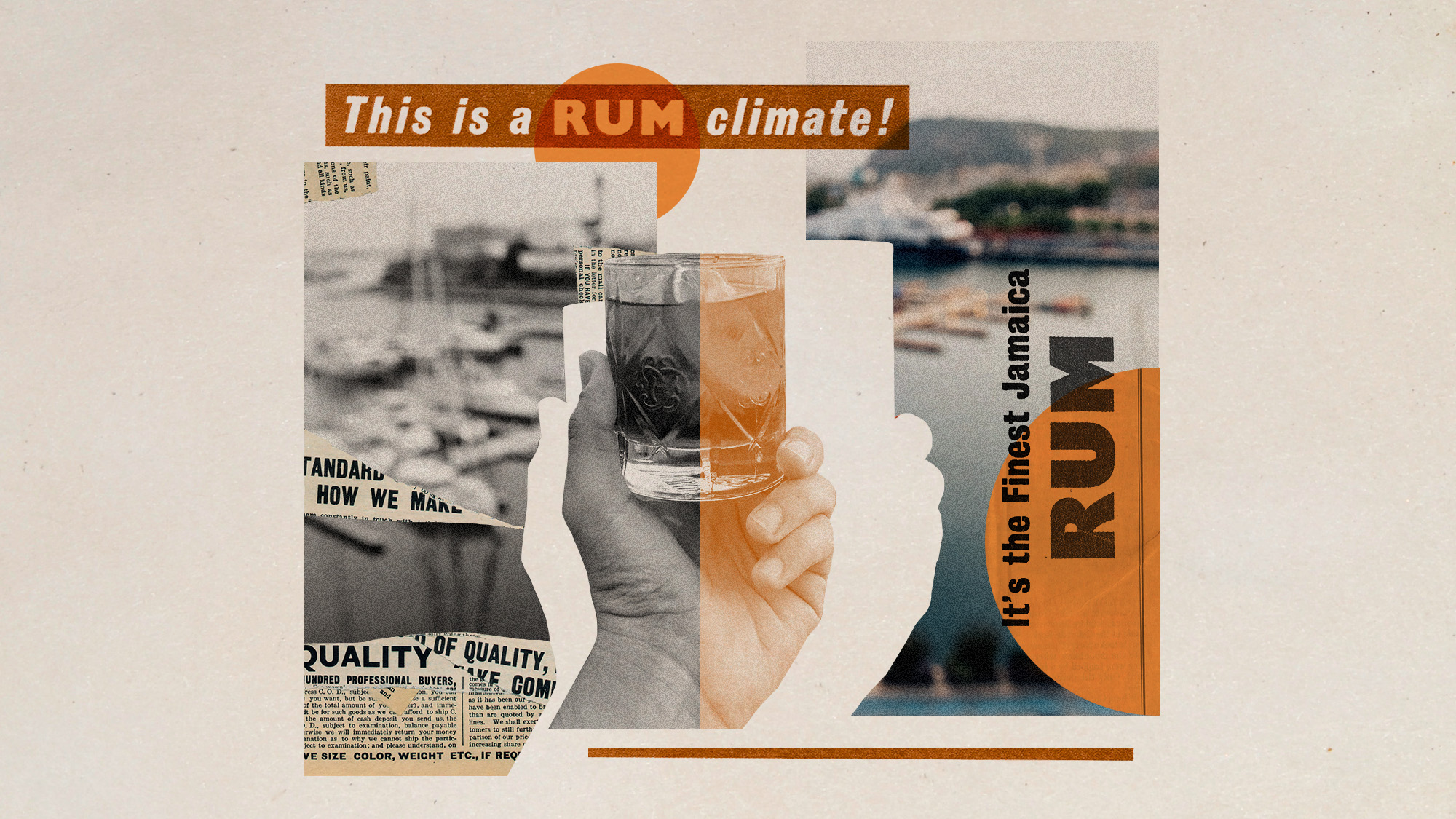The battle over Jamaican rum
The spirit that defines the Caribbean is at the middle of a legal fight

A free daily email with the biggest news stories of the day – and the best features from TheWeek.com
You are now subscribed
Your newsletter sign-up was successful
In Jamaica, rum is "more than just a drink", said Caribbean National Weekly. It's an essential part of the island's identity and culture – "a symbol of national pride and craftsmanship".
So, it's no surprise that a legal dispute over what makes a rum an "authentic" Jamaican rum is causing quite a stir.
National Rums of Jamaica (NRJ) is appealing a ruling made last year by the island's Intellectual Property Office that rum made on the island but "aged outside of Jamaica" can "no longer be called Jamaica Rum".
The Week
Escape your echo chamber. Get the facts behind the news, plus analysis from multiple perspectives.

Sign up for The Week's Free Newsletters
From our morning news briefing to a weekly Good News Newsletter, get the best of The Week delivered directly to your inbox.
From our morning news briefing to a weekly Good News Newsletter, get the best of The Week delivered directly to your inbox.
A 'premium product'
The amendment to prohibit overseas ageing was pushed forward by the Spirits Pool Association (SPA), the trade organisation that "seeks to speak" for the island's six rum distilleries. It argues that a stronger geographical indication (GI) designation is needed for the Jamaica Rum "to be officially recognised in the US and EU" as a "premium product", securing it "better protection against competitors", said the BBC.
It's true that strong GIs can "anchor production in that region", preventing a product from "becoming generic and losing its value". Across the world, "successful and longstanding GIs" have benefited such products as "Scotch whisky, champagne and Parma ham". The idea was that the same would happen for Jamaica Rum, boosting "acclaim and business" and "pride in product so intimately linked to Jamaica's history".
But "not everyone is on board", said Caribbean National Weekly. NRJ, which owns Long Pond and 73% of Clarendon, has a business model that's dependent on "exporting rum in bulk and ageing it overseas". Claiming that the amendment threatens the end of its business, it argues that rum aged outside Jamaica is still Jamaican rum, and that "the island has exported and aged rum abroad for centuries", said the BBC.
Business and heritage
Rum is "sewn into the DNA of Caribbean life", said National Geographic Traveller in 2023. For locals, it's there "for life's big moments", from christenings to the "ninth night" tradition of toasting a loved one after their death. And, for tourists, it's "liquid sunshine", as quintessentially Jamaican as the "slap of domino tiles on tables" and the "breeze gently riffling through the palm fronds".
A free daily email with the biggest news stories of the day – and the best features from TheWeek.com
The fight over the definition of Jamaican rum, then, is not overblown. It's about heritage as much as it's about business.
SPA wants Jamaican rum to be "globally recognised and safeguarded" for generations to come, said Caribbean National Weekly. But, for now, it's hopeful that a "compromise can be reached", said the BBC, even if the outcome is that both sides are "not totally happy".
Rebekah Evans joined The Week as newsletter editor in 2023 and has written on subjects ranging from Ukraine and Afghanistan to fast fashion and "brotox". She started her career at Reach plc, where she cut her teeth on news, before pivoting into personal finance at the height of the pandemic and cost-of-living crisis. Social affairs is another of her passions, and she has interviewed people from across the world and from all walks of life. Rebekah completed an NCTJ with the Press Association and has written for publications including The Guardian, The Week magazine, the Press Association and local newspapers.
-
 Bad Bunny’s Super Bowl: A win for unity
Bad Bunny’s Super Bowl: A win for unityFeature The global superstar's halftime show was a celebration for everyone to enjoy
-
 Book reviews: ‘Bonfire of the Murdochs’ and ‘The Typewriter and the Guillotine’
Book reviews: ‘Bonfire of the Murdochs’ and ‘The Typewriter and the Guillotine’Feature New insights into the Murdoch family’s turmoil and a renowned journalist’s time in pre-World War II Paris
-
 Witkoff and Kushner tackle Ukraine, Iran in Geneva
Witkoff and Kushner tackle Ukraine, Iran in GenevaSpeed Read Steve Witkoff and Jared Kushner held negotiations aimed at securing a nuclear deal with Iran and an end to Russia’s war in Ukraine
-
 Companies are increasingly AI washing
Companies are increasingly AI washingThe explainer Imaginary technology is taking jobs
-
 Why is pizza in decline?
Why is pizza in decline?In the Spotlight The humble pie is getting humbler
-
 How prediction markets have spread to politics
How prediction markets have spread to politicsThe explainer Everything’s a gamble
-
 SiriusXM hopes a new Howard Stern deal can turn its fortunes around
SiriusXM hopes a new Howard Stern deal can turn its fortunes aroundThe Explainer The company has been steadily losing subscribers
-
 How will China’s $1 trillion trade surplus change the world economy?
How will China’s $1 trillion trade surplus change the world economy?Today’s Big Question Europe may impose its own tariffs
-
 Job hugging: the growing trend of clinging to your job
Job hugging: the growing trend of clinging to your jobIn the Spotlight People are staying in their jobs longer than ever
-
 Is Trump America's CEO?
Is Trump America's CEO?Talking Points The party of free enterprise turns to 'cronyism'
-
 Why 'faceless bots' are interviewing job hunters
Why 'faceless bots' are interviewing job huntersIn The Spotlight Artificial intelligence is taking over a crucial part of recruitment